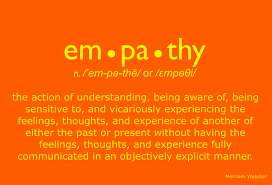 This week saw the death of two notables from the television industry, Bud Yorkin and Yvonne Craig. According to his Obituary in the New York Times (NYT), Yorkin rose up the television industry ranks to eventually team with Norman Lear to produce one of the true “pioneering, provocative and singularly successful satirical series” in the history of television, All In The Family, introducing one of the most recognizable characters in all of TV – Archie Bunker. When I say he began at the bottom end of the business: it literally was that, as he began repairing TVs in New York City bars. All In The Family not only broke ground by discussing taboo subjects it also became “the first TV series to top the Nielsen ratings for five consecutive years.”
This week saw the death of two notables from the television industry, Bud Yorkin and Yvonne Craig. According to his Obituary in the New York Times (NYT), Yorkin rose up the television industry ranks to eventually team with Norman Lear to produce one of the true “pioneering, provocative and singularly successful satirical series” in the history of television, All In The Family, introducing one of the most recognizable characters in all of TV – Archie Bunker. When I say he began at the bottom end of the business: it literally was that, as he began repairing TVs in New York City bars. All In The Family not only broke ground by discussing taboo subjects it also became “the first TV series to top the Nielsen ratings for five consecutive years.”
Yvonne Craig was known, according to her Obituary in the NYT, as the girl “who kept Gotham safe as Batgirl” whom she played in the 1960s TV series Batman. Craig was a classically trained ballerina who brought athleticism and “a scrappy girl-power element” to the series in its third and final season. However, I remember Craig as the green skinned slave girl in the “Whom The Gods Destroy” episode from the original Star Trek series. Her Obituary noted, “She performed a seductive, loose-limbed dance that seemed to nearly overwhelm William Shatner’s red-blooded Captain Kirk, while Leonard Nimoy’s Mr. Spock pronounced it “mildly interesting.””
Interestingly both of these televisions stars inform today’s compliance issue. Yorkin for the way he and his partner Lear held up a mirror, through All In The Family, to address such issues as “racism, sexism, abortion, gay rights and the war in Vietnam, among other television taboos” and Craig, “who kept Gotham safe as Batgirl.” Of course I am referring to the devastating disaster that occurred last week in the Chinese city of Tianjin. A NYT article, entitled “Report Details Role of Political Connections in Tianjin Disaster”, reported that the death toll now stands at 114, with 674 injured and more than 17,000 homes damaged. An unknown number of persons are still missing.
Is anyone really surprised corruption was involved in the tragedy? Enforcement of anti-corruption laws, such as the Foreign Corrupt Practices Act (FCPA), the UK Bribery Act or even Chinese domestic anti-bribery laws, is not a game for corruption can kill. While most corruption leads to economic damage, there have been clear instances where corruption led to the loss of life. The 2013 massacre at the Narobi Westgate shopping mall was clearly a result of corruption in Kenya that allowed guns used in the attack to be illegally smuggled into the country through bribery.
Now it has been reported that corruption led to the disaster in Tianjin. The FCPA Blog, in a post entitled “Report: Tianjin warehouse owners used guanxi to land phony safety licenses”, wrote that “The owners of the warehouse in the port of Tianjin that exploded last week and killed more than 100 people obtained fraudulent safety licenses through their connections with fire and safety officials, China state media said.” The warehouse where the fire started and spread from was illegally holding certain lethal chemicals. The post also noted, “Ruihai International Logistics owned the warehouse. The main shareholders of the company are ex-Sinochem executive Yu Xuewei and Dong Shexuan, the son of a late police chief, VAO News reported.” The FCPA Blog went on to quote the VOA report for the following, “In an interview with the official Xinhua news agency, Dong and Yu admitted to using their connections, or guanxi, with local officials to obtain various fire safety, land, environmental and safety certifications.”
In addition to the illegally stored chemicals, it turns out there should not even have been a warehouse in that location in the first place. In another NYT article, entitled “Report Details Role of Political Connections in Tianjin Disaster”, Dan Levin reported the warehouse itself was not far enough back from the prescribed distance for residential housing. It seemed clear from the confession of the Mayor of Tianjin that he had been involved in the corruption when he stated, “I bear the unshirkable responsibility for this accident as head of the city.”
Another indicia of Chinese corruption had come into play as well. The executives of the company, which owned the warehouse and illegally stored chemicals, Ruihai, hid their ownership interest. The article reported they “had other people list their shares to avoid the appearance of a conflict of interest.”
In yet another NYT article, entitled “Fear of Toxic Air and Distrust of Government Follow Explosions in China” also by Dan Levin, it was noted “Later on Tuesday, China’s anticorruption agency announced on its website that Yang Dongliang, a former deputy mayor of Tianjin who became the head of the State Administration of Work Safety, was under investigation for “suspected violations of party discipline and the law,” a common euphemism for corruption. The Beijing Youth Daily reported, however, that Mr. Yang has been under investigation for a half-year, raising questions about why the case was announced now. Two other officials accused of taking bribes are also under investigation.”
The fallout from this tragedy continues. However, with such widespread corruption many Chinese feel they are not being told the truth and that their government is protecting corrupt officials. Levin said, “Public reflection on man-made tragedies is politically risky for the ruling Communist Party, according to David Bandurski, an editor of the China Media Project at the University of Hong Kong. “The party leadership is very aware that questions of responsibility in a disaster like this can very quickly move to fundamental issues of power and legitimacy,” he said, explaining that in an authoritarian system, “the buck stops with you.” Mr. Bandurski noted that censors had struggled to control the Tianjin narrative because some Chinese journalists had pushed ahead with their own reporting. “This is a very messy story, and for Chinese media, messy means opportunity,” he said.”
The Petrobras scandal in Brazil is bringing into question the government of President Dilma, it could forebode the same in China. Corruption in all its forms is no laughing matter and enforcing anti-corruption laws is no game. While prosecuting companies engaging in bribery and corruption through the hiring of sons and daughters of government officials to retain or garner new business may seem quite a long way from the Westgate Mall massacre or the massive loss of life in Tianjin; they are clearly on a unidimensional continuum.
Just as Archie Bunker put a light up to many of the social ills of his time, the more light you can shine on corruption, the more you can root it out of the shadows. But do not forget to send in Batgirl and those fighting for justice against corruption as well.
This publication contains general information only and is based on the experiences and research of the author. The author is not, by means of this publication, rendering business, legal advice, or other professional advice or services. This publication is not a substitute for such legal advice or services, nor should it be used as a basis for any decision or action that may affect your business. Before making any decision or taking any action that may affect your business, you should consult a qualified legal advisor. The author, his affiliates, and related entities shall not be responsible for any loss sustained by any person or entity that relies on this publication. The Author gives his permission to link, post, distribute, or reference this article for any lawful purpose, provided attribution is made to the author. The author can be reached at tfox@tfoxlaw.com.
© Thomas R. Fox, 2015









